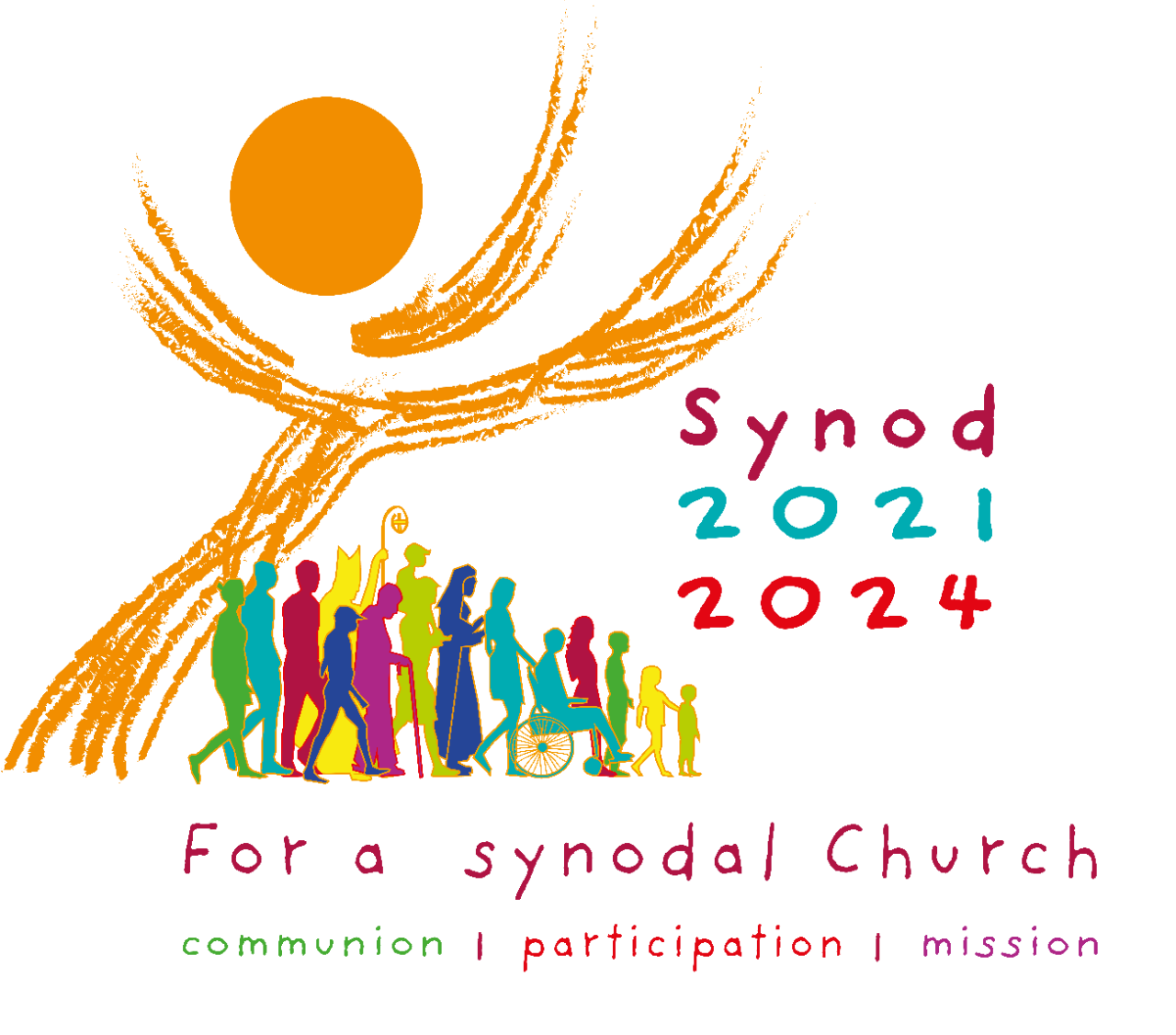Expectations for the upcoming Synod on Synodality, whose first session is scheduled to convene in Rome in October, are both unreasonably high and unreasonably low.
Officially, the meeting is known by the august title of the XVI General Ordinary Assembly of the Synod of Bishops. A bit about the nomenclature: Even though Pope Francis has appointed for the first time non-bishops (priests) and, more significantly, lay men and women, as full voting members, it is still called the Synod of Bishops. (However, the Vatican office that oversees it is the General Secretariat of the Synod, having dropped the word “bishops.”)
This is the 16th such gathering since Pope St. Paul VI reinstituted the synod, an ancient form of ecclesial consultation, in the wake of the Second Vatican Council.
Expectations for the upcoming Synod on Synodality, whose first session is scheduled to convene in Rome in October, are both unreasonably high and unreasonably low.
The Synod convenes at the behest of Pope Francis, who began the process in 2021. The focus of this historic synod will be on synodality itself: the way the church listens to the Holy Spirit and discerns its future. In the run-up to the October meeting (the first of two over two years), listening sessions were held around the world—first at the parish level, then at the diocesan level, then at the national level (that is, organized by bishops’ conferences), then at what was called the “continental level.”
Finally, all the responses were gathered together by a diverse group of people (priests, men and women from religious orders, lay people, etc.) into a working document or, in Latin, an Instrumentum Laboris.
This October, some 363 members (including me) will gather for a month to begin our discussions around the themes of communion, mission and participation.
Reactions to the Synod have varied widely, with some thinking that as soon as the October sessions end, church teaching will change on a host of topics. Others fear that the synod marks the beginning of a schism. Neither is accurate. As with many issues in the church, people’s reactions depend not only on their own outlook on various church matters, but what they understand about the process. As for me, I see it as a grace-filled way to listen to the voices of the faithful, guided by the Holy Spirit, from around the world. As Pope Francis has said, it is primarily an exercise in listening.
Many LGBTQ Catholics, who long for a voice in the church, also have high expectations for October. To that end, I thought I would offer one person’s perspective on the five most important things that LGBTQ Catholics should know about the Synod. (By the way, I’m not speaking in any official capacity for the Synod.)
1. LGBTQ voices are part of the final working document
As I’ve mentioned, the run-up to the Synod included listening sessions in parishes and dioceses all over the world. This was not a perfect process, and more than a few Catholics have said to me that they weren’t able to participate since their parishes or dioceses didn’t make it easy or even possible.
The focus of this synod will be on synodality itself: the way the church listens to the Holy Spirit and discerns its future.
This is perhaps not surprising, since this is the first synod to attempt this kind of a broad, worldwide consultation among the faithful. And this is, Pope Francis hopes, the first of many synods that will gather voices from around the world in this way. So it’s very much a work in process.
But one of the most surprising results was the clear inclusion of LGBTQ voices, something that probably would not have happened ten or certainly 20 years ago. The Instrumentum Laboris mentions the need to listen to “LGBTQ+” people twice. When I was in Rome a few months ago, a person who participated in the writing of the working document told me that fully half of the responses from dioceses included some mention of LGBTQ people, and not simply in the West. So the issue is on the mind of many Catholics around the world.
2. Some members come with experience ministering to the LGBTQ community
One of the most interesting aspects of the Synod is the varied backgrounds of the members. Roughly speaking, some members were appointed by the bishops’ conferences, some come by virtue of their office in the Vatican and some were invited by Pope Francis. And if you look carefully, you’ll see some members with explicit experience ministering with LGBTQ people.
One complaint that I have heard from some LGBTQ Catholics is that there aren’t any openly gay delegates. I have no way of knowing this, short of asking all 363 members. But even if that is the case, a quick glance at the backgrounds of the participants shows that a few have experience ministering to this community.
3. Others may be less open to LGBTQ people
At the same time, among the Synod’s members are those who may be less open to welcoming to LGBTQ people, particularly those from countries where the culture is antipathetic, or even hostile, to this community.
Last month in The Tablet, Ludovic Lado, S.J., a Jesuit from Cameroon who currently works in Chad, said, “I don’t hear any of the African delegates to the Synod in Rome saying that making room for ‘everybody’ in Church means including LGBT+ people. Many may be open to the idea of making more room for women in positions of authority in the Church, but that is the farthest they can go on gender equity issues. At least for now!”
The dichotomy of views on this topics, and on many others, is one reason why the pope is stressing openness, dialogue and listening, and asking for a synod (and a church) that listens. As I see it, just because someone disagrees with you on something doesn’t mean you can’t listen to that person. In fact, that’s probably the person you’re called to listen to most carefully.
4. The Synod meeting is not the place for church teaching to change
The Synod, as far as I understand it, has no authority to make (or remake) any church law. It is a deliberative and consultative body, rather than a juridical or administrative one. Generally speaking, at the end of most synods, popes usually issue what is called a “post-synodal apostolic exhortation.” Amoris Laetitia, on love and the family, which talked a great deal about not only love and charity but also conscience, was one of those documents, coming in the wake of the Synod on the Family, which concluded in 2015.
One of the most surprising results was the clear inclusion of LGBTQ voices, something that probably would not have happened ten or certainly 20 years ago.
At the same time, various issues of concern for LGBTQ people may be discussed during the synodal meetings, since they are part of the Instrumentum Laboris, which included many mentions of reaching out to groups who feel alienated from the church. (The title of the working document for the continental stage, Enlarge the Space of Your Tent, gives an indication of this desire.)
Yet I wonder if this first October meeting will be more of a series of encounters to help the members learn how to dialogue with one another, in order to prepare them for more discernment over the coming year. We perhaps won’t know that until we begin our deliberations.
5. You can still participate
Many people, but not everyone, have participated in the listening sessions around the world. As I’ve mentioned, some people felt frustrated that the synodal process did not reach their parish or diocese. And, of course, relatively few will be able to participate in the discussions in Rome. (There are also facilitators who will help to guide the conversations, but that is also a relatively small number.)
But everyone can participate in an extremely important way. This will be, above all, an exercise in listening to the Holy Spirit. We will all be listening for the voice of the Spirit not only as revealed in voices from the local, diocesan, national and continental stages; but also among the members, as they share their own experiences and those of their respective countries, cultures and communities. So we need the Holy Spirit’s presence and help! We need the Holy Spirit to help us see our way forward.
The Synod, as far as I understand it, has no authority to make (or remake) church law. It is a deliberative and consultative body, rather than a juridical or administrative one.
So perhaps the final thing that LGBTQ Catholics should know about the Synod is that we very much need your prayers.
Let me share with you the beautiful prayer for individuals and groups that will be used during the Synod. It was prayed at the beginning of every session of the Second Vatican Council. Its Latin title, Adsumus Sancte Spiritus, means “We stand before You, Holy Spirit.” It has been used at councils, synods and other church gatherings for hundreds of years, and is usually attributed to Saint Isidore of Seville.
We stand before You, Holy Spirit, as we gather together in Your name.
With You alone to guide us, make Yourself at home in our hearts;
Teach us the way we must go and how we are to pursue it.
We are weak and sinful; do not let us promote disorder.
Do not let ignorance lead us down the wrong path, nor partiality influence our actions.
Let us find in You our unity so that we may journey together to eternal life and not stray from the way of truth and what is right.
All this we ask of You, who are at work in every place and time,
in the communion of the Father and the Son, forever and ever.
Amen.



